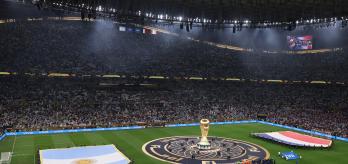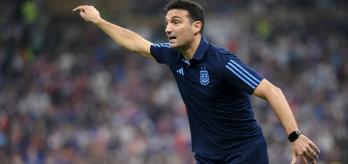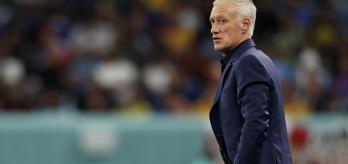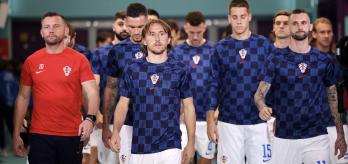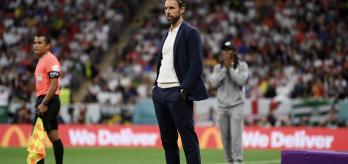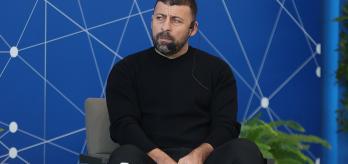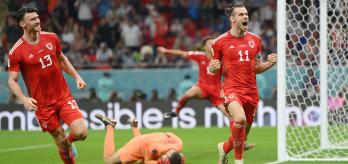00:06
Making big decisions
There are many important decisions Deschamps has to make as a head coach. But one of the most difficult is the player selection process. Although many of the players selected will be ecstatic with you including them, it is inevitable that those left out will feel disappointed. Despite these tough calls Deschamps acknowledges selection is his responsibility and he needs to form a cohesive collective where all players click.
02:33
Personality counts
On the international stage, every competing team has a squad comprised of the best elite players; every player is complete technically, tactically and physically. What gives one team the edge over another are its players' mental traits, their personality and the trust the group have between eachother.
03:39
Collective strength
Deschamps's staff spend a significant amount of time talking with players individually and as a group. Players should contribute to the 'collective strength' of the team, he explains. Exchanges feed this type of strength. Deschamps's staff initiate exchanges as often as possible: not just in team meetings but also on the bus to games, in the changing rooms and even in the canteen. Once a team has this strength they can reach new levels of performance on the pitch.
04:54
Coaching staff leading by example
People management within the coaching staff is of crucial importance. Deschamps's coaching staff consists of around 20 members. It is his belief that the players should follow the example given by these staff members. Therefore, members of staff have to abide by their own rules. But what happens if there is a disagreement amongst staff? Disagreements are natural, says Deschamps, but they should never take place in front of the players - displaying unity and solidarity in these settings is of utmost importance.
08:15
Understanding players as people
Again, Deschamps emphasises that knowing the person behind the player is most important. He demands background information of all his players, asking the youth national team staff to provide this for the younger players. With this context, Deschamps can have deeper and more effective discussions with his players, helping them fit into the collective and perform better on the pitch.
11:37
Desirable player qualities and training the attacking and defensive phases
For Deschamps, defensive phases such as the mid-block are easy to train and improve as a team. Attacking phases on the other hand are more difficult, requiring certain player qualities, time and a level of team chemistry. Deschamps wants his players to be fast sprinters, accomplished dribblers and quick decision-makers.
14:10
Tactical and technical trends of Qatar
Although teams with relatively low possession stats at the FIFA World Cup Qatar 2022™ performed surprisingly well, Deschamps seeks to win - and for him dominating possession comes part and parcel with this. The France Head Coach also explains that the most critical moments during matches are the transitions.
17:43
Is it possible to control chaotic matches?
Football matches can change quickly, as demonstrated by the final in Qatar. Deschamps stresses that anything can happen until the final whistle is blown and likens the players to actors participating in a movie; he will let the match unfold without shouting commands at players from the sideline. He likes to take a step back and 'live the game', speak to technical staff and discuss potential changes of strategy or substitutions, without being too controlling over the players on the pitch themselves. Sometimes plans work out well, other times they don't: we have to accept that football is not an exact science, says Deschamps.

